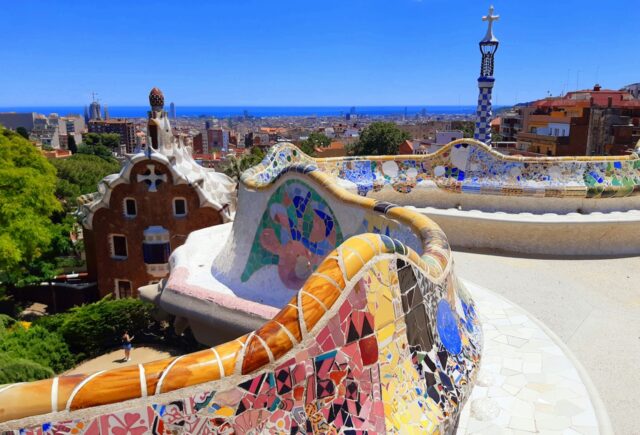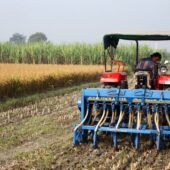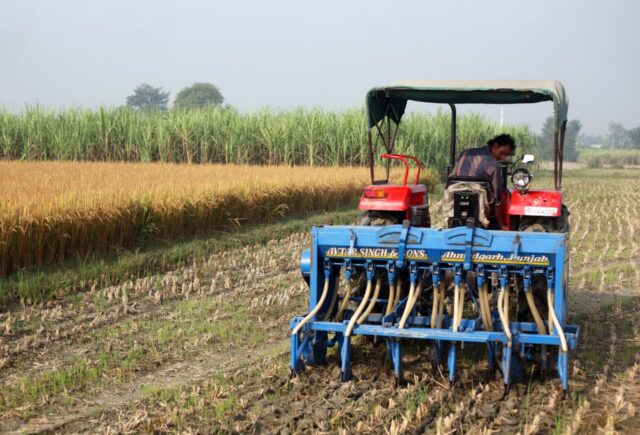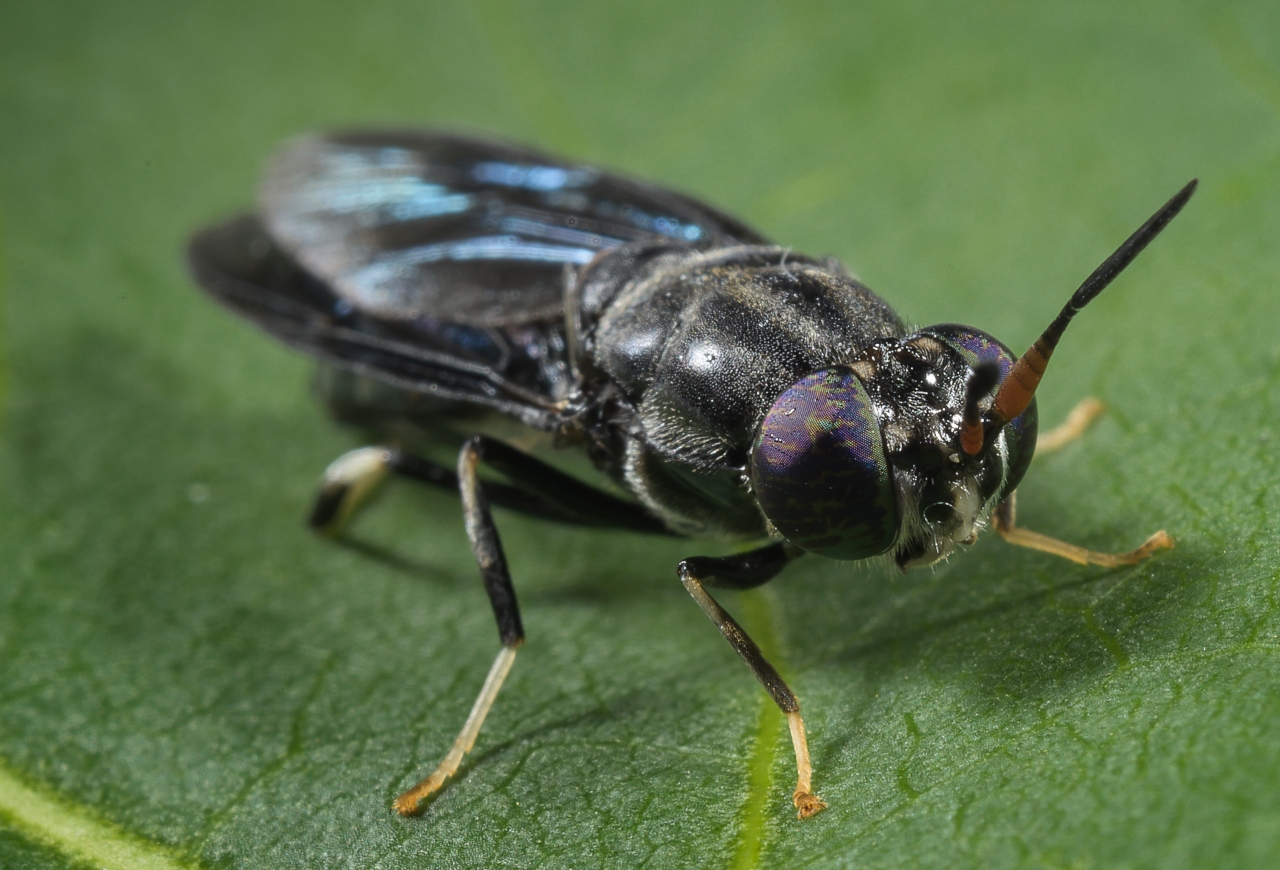
Protix, a pioneering Dutch insect breeder backed by a wide range of impact investors, has landed a two-fold investment from Tyson Foods, the biggest meat company in the US.
Arkansas-based Tyson Foods and Protix will form a joint venture to build an insect ingredient factory in the US. In addition, Tyson Foods will acquire a minority stake in Protix to fund its global expansion, both parties said in a joint statement. No financial details were disclosed.
The deal with the American meatpacker is “a milestone” and “mega-accelerator for our company, and the impact we have been trying to achieve for years”, Kees Aarts, co-founder and chief executive officer of Protix, told Impact Investor in a phone interview.
The deal with Tyson, which came after about eight months of negotiations and a “rigorous” due diligence process, gives Protix “the opportunity to expand internationally with a very scalable business model”, Aarts said.
The agreement “significantly accelerates” the firm’s ambition to grow its global gross revenue to around €1bn by 2035 through international partnerships, the company said in a press release.
Strong demand for insect protein
Tyson Foods’ bet on bug protein comes as the production of soy, still the most common ingredient in the production of animal feed, is linked to widespread deforestation, which has spurred consumers to look for cheaper options with a lower footprint.
“The insect lifecycle provides the opportunity for full circularity within our value chain, strengthening our commitment to building a more sustainable food system for the future,” John R. Tyson, chief financial officer of Tyson Foods, said in the statement.
Compared to many ingredients used to produce animal feed and food, insects don’t need much space, use less water, have lower CO2 emissions and are able to feed on waste that may otherwise have been thrown away.
Demand for bug protein, mainly as an animal feed and pet food ingredient, may jump to 500,000 metric tonnes by 2030, from around 10,000 metric tonnes in 2021, according to a report by Dutch lender Rabobank.
Dive trip
Aarts came up with the idea for Protix after he witnessed the effects of overfishing on local wildlife during a dive trip to Mozambique in 2009. A couple of months later, Aarts and Tarique Arsiwalla, both Delft University alumni, left well-paid jobs at consultancy firm McKinsey to start breeding insects.
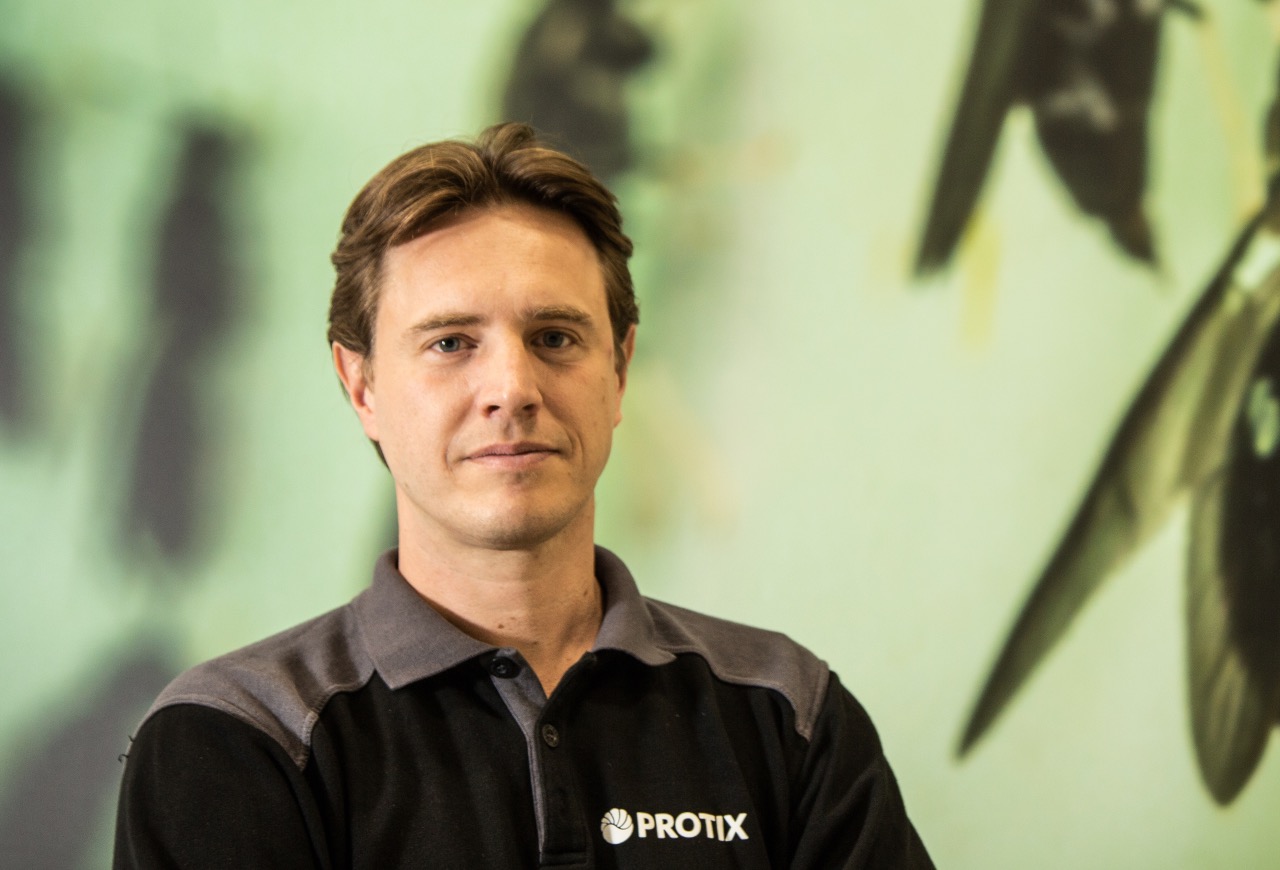
A decade after starting their company from Arsiwalla’s attic in Amsterdam, Protix opened the world’s biggest insect factory in Bergen op Zoom. The factory breeds larvae from the Black Soldier Fly, which are fed with organic waste from the food industry and are used as ingredients in feed for pets, fish, chicken and other animals.
The production of bug protein has “genuine impact”, Aarts said. “We are 85% more sustainable in terms of land usage, water and energy compared to the production of soy and palm oil.”
‘Catalytic investment’
Last year, Protix raised €50m as impact investors – including the European Circular Bioeconomy Fund, BNP Paribas, the Prince Albert II Foundation and The Good Investors – joined existing shareholders Aqua-Spark, Rabo Investments and Invest-NL. Protix had raised €15.5m the year before.
Excluding commitments in the US, Protix has now raised close to €200m from investors since its inception, according to Aarts.
Aarts said the deal with Tyson was not only a “very good investment in Protix, with strong recognition of our intellectual property position, but it is also a very attractive deal for all of our stakeholders”.
Veerle Berbers, co-founder of PYM: The conscious investors’ community, an independent foundation that connects and guides wealth owners to invest their capital consciously for a better world, is an investor in both Protix and Aqua-Spark. She talked to Impact Investor about her own decision to invest.
“Protix has been one of my most catalytic investments, as the company is replacing both fishmeal and soy in animal feed. Like Tesla revolutionised EVs, Protix is transforming the aquaculture industry by producing sustainable alternative feed ingredients,” she said.
US factory
Protix currently produces around 14,000 metric tonnes of insect ingredients a year at its Bergen op Zoom, Netherlands-based factory, which was opened in 2019 and cost €45m to build. Its end products are used for the production of sustainable pet food, aqua culture and livestock feed and organic fertiliser.
Its new factory with Tyson in the US will be about “three to four times” bigger than its Dutch plant, Aarts said. It will cover all aspects of insect protein production, from breeding to incubating and hatching of insect larvae.
The new facility, which could be operational within two years, according to Aarts, will be the first of its kind to turn byproducts from food production into high-quality insect proteins and lipids.
Although its products will be primarily be sold to pet food, aquaculture, and livestock industries, processed larvae could also be used as ingredients within livestock and plant feed.

